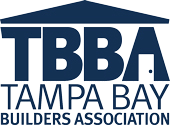
July 24, 2025
Florida condo owners hoping new legislation will provide financial relief may get a break, but other experts say the state needs to do more to ease burdens – and that includes the man who signed the latest bills into law.
"I think that this will provide relief," Gov. Ron DeSantis said last month at a media event in Clearwater after signing the two new bills, HB 913 and HB 393. "But to the extent that there needs to be some cleanup next year when the legislature reconvenes, we have to be willing to do that."
The need for new legislation arose from the pleas of condo owners and associations asking that the state correct the unintended consequences of 2022 laws. Florida created new safety and inspection requirements for condos in the wake of the 2021 Champlain Tower condo collapse that took the lives of 98 people in Surfside, a Miami suburb.
However, the cost of the inspections and subsequent repairs became a burden as housing associations passed on the expense to individual condo owners, forcing some to sell below costs.
According to the Associated Press, State Sen. Ed Hooper, R-Clearwater, characterized the initial legislation as an overreaction at the bill-signing ceremony in June.
"Now it's time to make the change," Hooper said. "Elderly people are losing their condos because they could not afford to make the increase in their monthly HOA fees. That's just wrong."
The new laws will aim to balance the safety regulations with more financial leeway for homeowner associations and condo owners. The associations will have up to two years to fund required repairs, and the ability to more readily access loans to cover repair costs once they’ve complied with inspections.
The second bill also lowers the threshold of unit owners needed to apply for state grants from 100% to 75% and requires associations to contribute $1 for every $2 in state grant money received.
Robert G. Smith, South Region president for FirstService Residential property management company, told Newsweek the new legislation will provide much-needed breathing room.
"One unique concern we've consistently heard from our boards is the frustration with being required to fund reserve studies that don't reflect real-time repair efforts," Smith said. “This bill directly addresses that issue by allowing associations to complete critical repairs first and conduct updated reserve studies based on the building's current condition. It's a more practical approach that recognizes the proactive work our boards are already doing—and it clearly shows that their voices are being heard in the legislative process."
The real estate and building industries may find solace in the changes. In May, the closed condo and townhouse sales were down 20 percent year over year, but single-family homes saw just a 6 percent decline. The legal requirements emanating from the 2022 legislation surely played a factor, but so too did rising property insurance costs and hurricane concerns with so many condos sitting on Florida shores.
In a Yahoo Finance article, the founder and chief executive officer of a company that provides administrative services to condo associations said the effects of the new laws may be limited.
The founder and chief executive officer of A-Smart Cam, which provides administrative services to condo associations in South Florida, thinks the new law should provide some relief for beleaguered owners, but the effects may be limited given that fees have doubled or tripled in some instances.
“It’s very nuanced,” said A-Smart Cam CEO Jose Pazos. “How much relief is it going to give to that doubling or tripling? The repairs still have to get done.”
Kat Amador, partner and real estate attorney with Berger Singerman, told Newsweek that while the bill offers flexibility for associations, it doesn’t address the assessments burdening individual condo owners.
"In my practice, I regularly see owners forced to sell below market because buyers discount for looming repair costs,” Amador said. “It's even worse when owners can't afford repairs at all, leaving the building tagged as unsafe.
"Unit owners are forced to move out, stuck with huge costs for a home they can't use, and hoping someone will buy fast."
